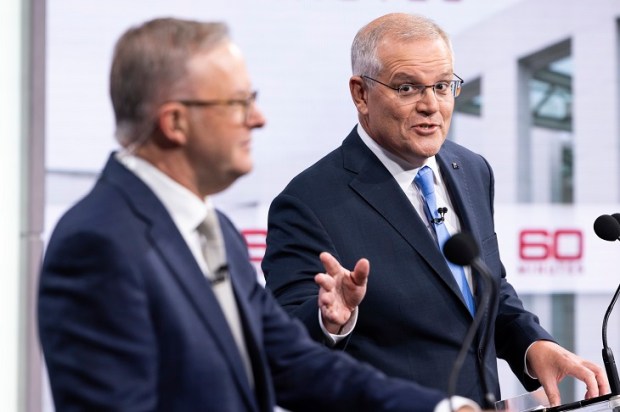Donald Trump’s proposal to own and rebuild Gaza has been criticised by every expert and the Arab nations in the Middle East. One academic on ABC TV was so dismissive of Trump’s plan that he deemed it unnecessary to respond to a journalist’s question about it.
Unlike his proposed 25 per cent tariffs on Canadian and Mexican imports – while experts are dismissive of the Gaza proposal and believe there is some strategy behind it – they seem unclear on what that strategy is.
Some suggest it is all about claiming oil reserves off the coast of Gaza; others believe he is trying to secure property for his own family’s real estate business. Still, others speculate that he wants to distribute lucrative building contracts to family and friends.
The most likely motivation is that Trump is pre-emptively positioning the US for when the inevitable call comes for vast amounts of US and Western aid to rebuild Gaza once the last hostages are released.
He knows that the next phase of the Gaza conflict will focus on innocent families returning to destroyed homes and decimated schools. Pressure will mount (rightly) for a massive rebuilding effort on humanitarian grounds.
By offering to rebuild Gaza – albeit with the condition of taking ownership of the strip – Trump is shielding himself against accusations of US indifference in not committing resources to rebuild what American bombs have destroyed. The US will do it, but they have made it clear it will be on Trump’s terms.
The case for rebuilding will be hammered in the media, and the rebuilding effort will also become the vehicle on which the United Nations (UN) will attempt to restore funding cut by the US from the World Health Organisation (WHO) and the United Nations Relief and Works Agency (UNRWA).
Once the UK and the Arab states realise that rejecting Trump’s plan has huge financial implications for them – leaving them to undertake the rebuild without US involvement and to assume responsibility for security in the region – they are likely to become far more sympathetic to Trump’s proposal.
Calling for a ‘two-state’ solution will not be an effective foil to Trump. The history of Arab and Palestinian leaders rejecting proposals in the past and refusing to accept Israel’s right to exist will erode the power of this solution.
In 1947, the UN proposed partitioning British-controlled Palestine into a Jewish state (55 per cent of the land) and an Arab state (45 per cent), with Jerusalem under international administration. Palestinian Arab leaders, along with Arab states, rejected the plan, refused to recognise any Jewish state, and initiated the 1947–49 Arab-Israeli War.
Following this conflict, the UN Security Council passed Resolution 242, calling for Israel’s withdrawal from territories occupied during the war in exchange for peace and recognition. However, the Palestine Liberation Organisation (PLO) rejected the resolution, as it did not explicitly acknowledge Palestinian national aspirations. Instead, the Arab League adopted the ‘Three No’s’ in Khartoum: no peace with Israel, no recognition, and no negotiations.
In 1979, at the Camp David Accords, Egyptian President Anwar Sadat and Israeli Prime Minister Menachem Begin – brokered by US President Jimmy Carter – agreed on a framework for peace, including autonomy for Palestinians in the West Bank and Gaza. The PLO rejected the accords, viewing them as a betrayal by Egypt.
The 1993–95 Oslo Accords proposed a phased path towards Palestinian self-governance. The agreement was signed between Israeli Prime Minister Yitzhak Rabin and PLO Chairman Yasser Arafat under US mediation. While initially accepted by Arafat, the agreement ultimately broke down due to disputes over final borders and other issues.
In 2000, at the Camp David Summit, Israeli Prime Minister Ehud Barak – under US President Bill Clinton’s mediation – offered a Palestinian state with 92 per cent of the West Bank, 100 per cent of Gaza, and shared sovereignty over East Jerusalem. Yasser Arafat rejected the offer, citing concerns over East Jerusalem, refugees, and borders. Bill Clinton later famously stated, ‘Arafat was here 14 days and said no to everything.’
As a follow-up to Camp David, the 2001 Taba Talks saw the Israeli government make further concessions, proposing a Palestinian state with 97 per cent of the West Bank and a capital in East Jerusalem. The Palestinian leadership walked away, stating they could not accept the final terms regarding borders and refugees.
Seven years later, Israeli Prime Minister Ehud Olmert offered Palestinian President Mahmoud Abbas a state on nearly 94 per cent of the West Bank, land swaps, a capital in East Jerusalem, and international oversight of holy sites. Abbas later confirmed that he ‘did not accept it’ and ‘wanted to study it,’ but he never responded with a counteroffer before Olmert left office.
In 2014, US Secretary of State John Kerry facilitated discussions between Israel and the Palestinian Authority based on a two-state framework. Abbas rejected key security provisions and refused to acknowledge Israel as a Jewish state. The talks collapsed.
Given this history, it is astonishing that political leaders still cling to the rhetoric of a ‘two-state’ solution. Palestinian leaders have always wanted a one-state solution, and that state is not Israel.
And the failure of Gaza citizens to restrain Hamas in building tunnels and terrorist infrastructure after Israel disengaged from the region in 2005 means that Israel will now only accept a radically different governance structure of the region.
The ‘two-state’ position will increasingly be ridiculed, particularly by Trump, who carries the authority of a US President and an effective media team. I suspect other world leaders will quietly hope that some country steps up to solve the problem.
In discussing the issue with others, I have found the simplest way to respond to critics of Trump’s proposal is to ask one question: What is your alternative?
They speak for a few seconds and then realise they don’t have one.
Nick Hossack is a public policy consultant. He is former policy director at the Australian Bankers’ Association and former adviser to Prime Minister John Howard.

























